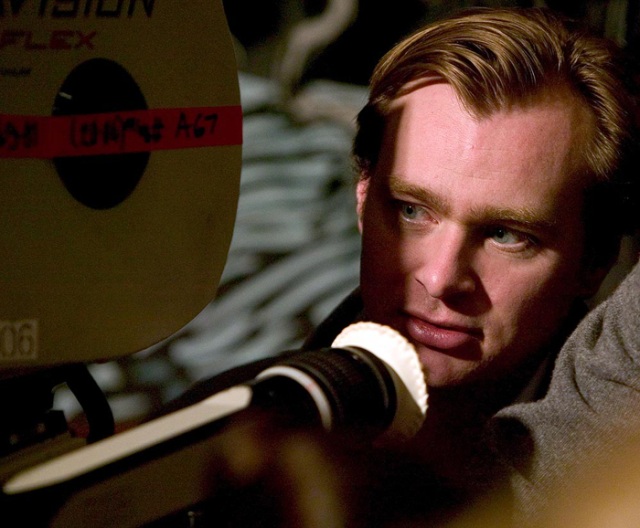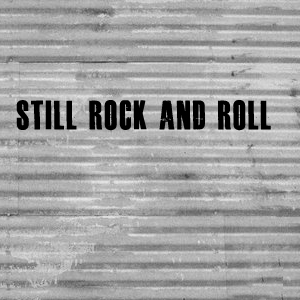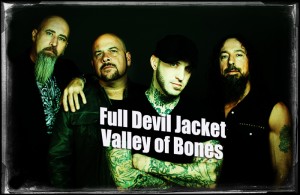The Dilemma of Christopher Nolan
9 min read
 Christopher Nolan’s Inception is still lighting up the box office with, at the time of this writing, around $200 million in domestic receipts and counting. It has also set the web blazing with debate of every variety; of plot minutiae, dream logic, the direction, and of course the greatest question of all…what does it all mean?!?! At this very moment, thousands of fingers smack keyboards feverishly declaring Nolan’s latest Chinese finger trap of a film a masterpiece, insisting on its brilliance, its importance. I observe that when speaking of Inception there is no room for measured or moderate terms of praise like “good,” “interesting” or “well done”; no, not when the more grandiose declarations “best film of the decade,” “mind-blowing” and “transcendent” are available. When it comes to Nolan, hyperbole is the order of the day. Few directors working today inspire more rabid, unmediated reactionary devotion than Nolan. The thing is, I understand why people really love his work (hell, there are directors I would probably martyr myself defending, such as Spielberg, Tarantino, Kubrick, and Bahrani). In fact, as a matter of full disclosure, he has not made a movie yet that I don’t like. I rather enjoy a good mind-trip. The mythic scale that his films take fascinates me. The rich colors, the cold blues and warm earth tones, really pop in a Nolan film. I have nothing against the man’s work. What intrigues and confuses me are his followers – his apostles. Just why has Memento (2000), Nolan’s backward working mindbender, become the “new” Fight Club? By that I mean a film claimed by a generation as its touchstone. And why does it appear that Nolan is shaping up to be, for some in this generation, a kind of new David Fincher? I think the answer to this question, or rather my attempt to speak to it, says something about current culture and narrative preference – and I’m not quite sure I like it.
Christopher Nolan’s Inception is still lighting up the box office with, at the time of this writing, around $200 million in domestic receipts and counting. It has also set the web blazing with debate of every variety; of plot minutiae, dream logic, the direction, and of course the greatest question of all…what does it all mean?!?! At this very moment, thousands of fingers smack keyboards feverishly declaring Nolan’s latest Chinese finger trap of a film a masterpiece, insisting on its brilliance, its importance. I observe that when speaking of Inception there is no room for measured or moderate terms of praise like “good,” “interesting” or “well done”; no, not when the more grandiose declarations “best film of the decade,” “mind-blowing” and “transcendent” are available. When it comes to Nolan, hyperbole is the order of the day. Few directors working today inspire more rabid, unmediated reactionary devotion than Nolan. The thing is, I understand why people really love his work (hell, there are directors I would probably martyr myself defending, such as Spielberg, Tarantino, Kubrick, and Bahrani). In fact, as a matter of full disclosure, he has not made a movie yet that I don’t like. I rather enjoy a good mind-trip. The mythic scale that his films take fascinates me. The rich colors, the cold blues and warm earth tones, really pop in a Nolan film. I have nothing against the man’s work. What intrigues and confuses me are his followers – his apostles. Just why has Memento (2000), Nolan’s backward working mindbender, become the “new” Fight Club? By that I mean a film claimed by a generation as its touchstone. And why does it appear that Nolan is shaping up to be, for some in this generation, a kind of new David Fincher? I think the answer to this question, or rather my attempt to speak to it, says something about current culture and narrative preference – and I’m not quite sure I like it.
New York Times film critic A.O. Scott recently published a piece on the rabid nature of Nolan apologists entitled “Everybody’s a Critic of the Critics’ Rabid Critics” (July 21, 2010). It is a fine piece, and quite timely. In it, he mulls over the same questions I presented in my opening paragraph. Why is there no room for moderation in critical discussions of Nolan? Why must you either hate Inception or love it? He inquires, “Do certain directors inspire unreflecting loyalty from both professional critics and passionate movie fans? Does the perception of this kind of bias plant seeds of skepticism that blossom into overstated negative reactions? What role does expectation (or hype, if you prefer) play in the audience’s experience of a movie?” This is a very worthy discussion to have. A brief scan of Facebook notes and status updates, message boards and movie sites, as well as comment sections of movie critic columns will prove my (and Scott’s) point – fans of Inception (and Nolan in general) can be fanatical and, to use Scott’s brilliant description, “unreflecting.” In the blogosphere there have been a few remarkable analyses of this phenomenon. I particularly loved Jim Emerson’s treatment of the critical battle over negative reviews. Yet I most highly recommend the unapproachably brilliant wordsmith Roger Ebert’s blog entry titled “Whole Lotta Cantin’ Goin’ On,” in which he waxes philosophical about the nature of criticism and opinion. He opens with a great line so eloquently simple and absurd that I laughed for five minutes upon reading: “Can a film be great without question? Is it demented to find fault with ‘Inception’?” And that is coming from a critic who gave the film his highest star rating! The matter being raised is: why is it so offensive to not find Inception brilliant? That question is related to the larger question of why does Christopher Nolan inspire such zealous devotion?
I have noticed something in recent years. It used to be that when you asked a typical Generation Xer (and even those born heading into the mid-80’s) to name their favorite movie, the odds were quite good that the response would be “Fight Club,” the 1999 David Fincher adaptation of the 1996 Chuck Palahniuk novel of the same name. Everyone from film geeks to frat boys loved Fight Club. The movie is packed to the gills with great stuff: smart direction, black humor, social commentary, brutal violence, genuine edginess, and a truly mind-blowing ending. David Fincher is a mature director, a skilled composer of layered shots, and his films (complex and puzzling as they can be) seem to reach out to the viewer. Movies like Fight Club, Seven (1995) and Zodiac (2007) are dialogical; they touch viewer, cinema, society, psychology, and politics. Fight Club, often accused of being a nihilistic manifesto, is ultimately about what happens when a generation has no outlet, no conviction, and has been driven to the brink by suffocating conventionality. It reflects a generation and a society that, as the character Tyler Durden proclaims, “has us chasing cars and clothes, working jobs we hate so we can buy shit we don’t need. We’re the middle children of history, man. No purpose or place. We have no Great War. No Great Depression. Our great war is a spiritual war. Our great depression is our lives.” It reflects, comments on and, to some degree, laments. Whatever can be said about Fight Club (and, I would argue, Fincher in general), it means something. However, these days it seems that Nolan’s Memento is giving Fight Club a run for its money. Increasingly it gets mentioned in the discussion of favorite films, best films, or touchstone films. I would argue – this is not based on a scientific poll of course – that there are more college students (certainly even film students) who would cite Memento as their favorite film before Fight Club. Just five or six years ago, I don’t think this would have been the case. But why?
Keep in mind; I am just stabbing at some ideas here. To say anything definitive about a film, or a generation, is simply folly. Yet I will attempt to put my finger on something. Despite being released just one year apart, Memento and Fight Club are two similar-minded films (psychological films with a twist) that seem, to me, to be from different eras. Fight Club uses narrative play and postmodern subjectivity, in a way, to lament the loss of something. Yes, it is a complicated, twisty, puzzle of a film. Yet Fincher points his film in a direction; it radiates outward with anger, frustration, and visceral urgency. Memento, as with most of Nolan’s films (with the notable exception of The Dark Knight…and possibly Insomnia [2002]), is entirely self-contained. It radiates not outward, but inward, though admittedly with precision and admirable confidence. Inception itself provides the perfect metaphor for Nolan’s work. Near the beginning, Cobb (DiCaprio) gives young, talented architect Ariadne (Page) a test – design and draw a maze that takes one minute to create and two minutes to solve. She does so successfully. This act of creation is like a Nolan film; it displays great skill, a certain sterile beauty, and tickles the mind. Yet how does a person engage a maze? Certainly answers to that question will greatly vary. Nonetheless, the drawn maze, impressive as it may be, is entirely self-contained and impersonal. It is “architecture,” to use a trope from Inception. A Nolan film is preoccupied with the notion of reality, emphasizing the subjective nature of experience, but never asks important questions beyond that. You might believe this to be a good thing, a noble thing, and you would be entitled to that opinion. Yet I suppose this is what frustrates me about Nolan’s rabid fan base: it seems to demonstrate that that they (and perhaps this includes the generation) embrace idiotic postmodern ideas of truth and reality. This is not to say postmodernism as a philosophy and an esthetic is without value, because it most certainly does have a great deal to offer. Instead, I believe that Nolan’s work in general is guilty of the worst kind of superficial postmodernism – deconstruction for the sake of itself. This is a favorite pastime of Philosophy 101 students; which is perfectly fine. That is why they are in Philosophy 101.
Yet Nolan’s work seems to keep answering profound questions with the same response, which is to call into question the stability and knowability of experience. Fair enough. I think there is great value in that approach. This is why I continue to think The Dark Knight is Nolan’s best work. In it, he puts the ethical presuppositions and foundation of Batman/Bruce Wayne at the center of this struggle, and it works. Nolan also applies moral and narrative subjectivity and “shades of gray,” which seem immature and silly in his other works, to the War on Terror – a subject begging for that kind of treatment. The Dark Knight, like Fincher’s Fight Club, radiates outward with questions, searching and conviction. Inception was a return to the old Nolan. Taking cues from his own film The Prestige (2006), he constructs his stories in tight, descending spirals through misdirection and cleverness, culminating in a final moment…the prestige! This is the reveal that everything is not as it seems…or maybe it is…? The prestige is usually impressive and game changing, but in my view does not, in and of itself, support an entire film. In this way, Nolan’s films consistently follow a distilled postmodern ethic, from script to esthetic: all question, no striving. His films give the very strong impression of great weight and significance, yet like an illusion, are mostly smoke and mirrors. It is indeed a very good show, but a good show can still be illusion. In fact, as an example, one of Inception’s greatest tricks is the music, especially the single heavy note that was used throughout the theatrical trailer – that bombastic “bwwwoooommmm” that punctuates sequences in the film. It is a fascinating sound, but I keep wondering…what does that note mean? What feeling does it convey? How does it inform the image? It is an absolutely wonderful example of “smoke and mirrors,” because it insists on the power and profundity of what is on the screen. It insists quite forcefully, actually. Perhaps a little too forcefully. It gives the generalized impression that the screen image has a weighty importance (as if to declare, “Look at this! Feel this! It is important!”), thereby masking the fact that in reality it is just an illusion – just a really fine show. This is typical of Inception and Nolan in general.
I suppose there are two reasons I felt the need to write this piece. First, I am uncomfortable with the level of hyperbole in the discussion of Christopher Nolan, be it positive (the overwhelming majority) or negative (the castigated minority). As in my review of Inception, I feel the need to occupy (and explore) the middle ground on Nolan, refusing to call his works unmitigated masterpieces, nor to dismiss him as a hack. He is neither. Rather, he is a genuinely fascinating director and visionary cinematic architect (a phrase I am certain he would see as a compliment), but not a crafter of masterpieces. Until he can link his skills to something truly profound; something that reaches outside of itself; something that plunges deeper than the wading pool of superficial postmodern deconstructionism; something with the guts to do more than show what, but ask why; until he does these things (which he did once with The Dark Knight as I’ve said), his films will continue to remain fine examples of well constructed cinematic puzzles and clocks. The second reason is peripherally related to the irony of David Fincher releasing his Facebook movie The Social Network later this year, because social networking sites like Facebook are emblematic of current societal trends that I believe inform Nolan’s immense popularity with this generation. Facebook itself is a double-edged sword. It has the potential to serve as a magnificently free and immediate platform for serious discourse, ideas and organizing, yet it simultaneously nurtures and exploits the desire for self-satisfaction, egotism and cold isolation. In this way, it makes perfect sense that the Facebook and Twitter generation would love Nolan. His films provide great fodder for status updates, tweets, and Cracker Jack box philosophizing. They are water cooler pieces – and the water cooler is a great place for half-realized, half-baked theorizing. In a sense, there is something natural and admirable about a director who inspires that kind of community. However, at the water cooler and on Facebook, having your “mind blown” seems to automatically make a movie a masterpiece, which reflects a society dangerously devoid of true introspection. It is inherently shortsighted and dull to be satisfied with such a result, no matter how skillfully it is achieved. I do not believe we should be content to have our minds blown, nor should we be content with smug postmodern deconstructionism; no, as interesting and gratifying as these things may be, they do not in and of themselves add up to a masterpiece. I end with this declaration: Memento is no Fight Club and Christopher Nolan is no David Fincher. I know David Fincher, and Mr. Nolan…you are no David Fincher.






I love how you end this. I remember that Vice Presidential debate. I also feel that same separation that you describe from time to time talking film with some people.
I am glad you can relate Paul!
How many films that make a statement “out” does Nolan have to make? You mentioned he did one. Does he need a ceratian ratio? Perhaps Nolan’s super fans are introverted and see dealing with the inner-self as more interesting than dealing with society’s problems. Perhaps Fight Club speaks to the heart of those who want to make a difference in society. Why is dealing with the complex of the outside more artistic and worthy of praise than dealing with the inner mind? Is the inner mind just a piece of the puzzle that is society and reality?
I think you misunderstand what I mean by “outward”… it did not be political or social, those are merely means of being “outward.” There is no ratio, in that sense. The question is, should an “artist” keep making puzzles, or mazes? As I say, there is value to being “that director”…which I why I’ve liked every one of his movies…but in my view this is limiting, and makes me question the calls of “masterpiece.”
Kudos. You’ve got it all figured out. Keep up the…
Cool, I found a peanut. Yum.
“Until he can link his skills to something truly profound; something that reaches outside of itself; something that plunges deeper than the wading pool of superficial postmodern deconstructionism; something with the guts to do more than show what, but ask why; until he does these things (which he did once with The Dark Knight as I’ve said), his films will continue to remain fine examples of well constructed cinematic puzzles and clocks.”
I think this is a very astute observation and one that’s hard to argue. Very well written, Lee!
Ok Lee, you linked me to your (great) article, so I feel the need to comment on it. But first, disclosure:
1. I did not know who Christopher Nolan was until after I saw Inception. I had seen Memento and the Batman Movies, had loved them and recommended them to people, but I hasn’t linked the director together in my mind. I’m sure my (film school graduate) brother would punch me if he knew that. For that matter, I didn’t know who directed Fight Club until I read this article. That is probably bad. I should probably pay attention to directors. It may even put me in the classification of “she who’s opinions of movies mean less”. I understand if they do. I have seen a lot of really crazy, awesome, out-there movies people haven’t heard of, but mostly because my brother, husband, and best friends have fantastic taste in movies, and I pay attention to their recommendations. I <3 NetFlix
2. I had not read anything or seen any full previews of Inception before I saw it. this is very common for me. I don't watch a lot of TV, when I do it's TiVoed and I skip the commercials, or it's on NetFlix streaming/DVD or On-Demand and there aren't any. I also don't read much in the way of "movie buzz" (see above). I had vaguely seen something with Leo and Page sitting in front of a cafe that was blown up (and generally, an explosion signals 'you will not like this movie' in my brain), and then Leo standing on the beach with those massive grey walls in front of him, but that was all I had seen about it. I think I saw this during world cup games, and was way to distracted in the agony of USA's fallacy to pay much attention. My husband insisted we see it on opening night, so we went that Friday night, and I went in pretty much "blind".
Okay, so, those are my disclosures. I write them to say that my reaction to "Inception" was, at least initially, completely just based on what I saw on the screen, and not on a pre-concieved judgement about the director or the movie. I was completely blown away. I left the theatre exhilarated, practically skipping through the parking lot. It is so rare to see such fine work, something so tight and gripping, both exciting and thought-provoking. So many movies just don't care that much. I pulled out the iPhone and dashed off a glowing message on Facebook. I then made plans to babysit my best friends' kid so they could go see it – so we could talk about it! My husband and I laid in bed and discussed it for about an hour once we got home. Then we both fell asleep and had some dreams that were completely bonkers.
I LOVED Inception. However, I wouldn't call it a masterpiece. I agree with you in your basic message of, "what does it mean?" – and not in a "was it all a dream? did he wake up? were the kids real or not?" kind of way, but in a larger, broader, "what does this movie tell us about ourselves?" kind of way. I left the theatre completely exhilarated, but with no sense of personal inspiration, drive, or life-altering retrospect. True masterpieces – of any art – are those that let us peer into our own definition of self, to reflect on our decisions and beliefs, that speak to us in whispers or shouts about who we are as individuals and a society. Inception does none of that.
Inception might be the best clock ever made. This amazing, gorgeous, master-crafted clock deserves a heap of praise. It made people think (a huge feat in and of it's own) but it didn't make people reflect. Perhaps a masterpiece can't be a clock, it must be a mirror.
There are two trends these days in society at-large, both that truly frustrate me. The first is extremism. That's pretty self-explanatory. People who loved this movie can't stop themselves from squealing "Best movie Ev-AR!" and people who are frustrated by the open-endedness retort, "Naw man, Inception sucks! Shutter Island Rulez!" Except for the fact that Shutter Island does, indeed, rule, both of these reviews are wrong. Can't a movie just be good? 9/10? Awesome? Go-See-It? Why does it have to be the worst or the best? The second trend is ranking. What are the top ten best movies ever made? What was better, Inception or Shutter Island? If you were on a deserted island and could only bring 10 DVDs… I have a really hard time with this way of thinking. I really have trouble with deciding, "This something is the best something". Once again, can't we just agree: This movie is good. You should see it. I am guessing your critique is as rooted in the reviews of Inception as it is in the movie itself. In some way, you are simply defending rationalism. I totally agree with you.
I still plan on seeing Inception in IMAX before it leaves the theatre!
A really really great comment Amanda. Really great. There is too much good stuff to quote and respond to, so i won’t. I will say this, the comment, “Perhaps a masterpiece can’t be a clock, it must be a mirror,” is really great stuff. You are on to something there.
And in my view, the only “mirror movie” Nolan has made is The Dark Knight.
I can only respond well when given good material, thanks for the great review!
Ultimately, I must incite The Dude:
Well, that’s just, like, your opinion, man.
Come to think of it, I’m not sure The Dude ever said that, but his response might have been something akin to that.
My point is: everyone is allowed to like or dislike Inception as much as or as little as they want to. A movie doesn’t have to make some great statement or be “a mirror” to be great or a masterpiece. To me, film is about storytelling, and Inception is a masterpiece of storytelling.
If you think such classifications are hyperbole, awesome. But it’s just your opinion. Man.
Yes of course it is. But to quote Roger Ebert:
“All the same, if you say you dislike “The Godfather” or “Shawshank,” I can’t say you’re wrong. The one thing you can never be wrong about is your own opinion. It’s when you start giving your reasons that you lay yourself open. Many years ago there was a critic in Chicago who said “The Valachi Papers” was a better film than “The Godfather.” “Phil,” I told him, “film criticism is a matter of subjective opinion. Only rarely does it stray into objective fact. When you said ‘The Valachi Papers’ was better than ‘The Godfather,’ that was an error of objective fact.””
Simply saying “that’s your opinion” tells us nothing, merely that it’s your opinion. Isn’t that a given in film criticism, that’s it’s all opinion? So why don’t we go from there and make our cases?
and yeah “Well, that’s just like–your opinion man” is definitely a Dude quote.
Interesting article! I like the ideas you put forth, but maybe “… reflects a society dangerously devoid of true introspection” is a little over the top in this context.
Your point about the music being to insistent and commanding is a good one, though I think it worked and I think one ought not to seperate soundtrack and action too much in a movie. You can, to some extent, of course, critizise one without the other, but I think you ought to step carefully – they are two parts that form a whole.
But if we talk about Zimmer’s music in general, I think he has become a little to predictable over the last couple of years. His score for “Shutter Island” is very similar to that of “Inception”. He needs to rethink himself as a film composer.
Nolan has never made a decidedly bad movie (in fact, I quite like many of them), but to earn a place in my heart he needs to start making more unique and personal films. They just don’t touch me – as a person – that much.
Thanks for a great article, Lee.
Interesting article, enjoyed reading it, but i had a problem with this comment…
“I do not believe we should be content to have our minds blown, nor should we be content with smug postmodern deconstructionism; no, as interesting and gratifying as these things may be, they do not in and of themselves add up to a masterpiece.”
I feel this kind of filmmaking you’re describing should be applauded, it’s contemporary filmmakers (our very own generation’s filmmakers) commenting on film history which is one of the most interesting and personal off-shoots of film for me. And after all isn’t that what every Tarantino film is about? Whose had a number of his films described as ‘masterpieces’, and who you’ve labelled as one of your favourite directors. I’m not trying to be smug and catch you out, but I think you’ve overlooked that and going by that comment you made you probably do like Inception more than you’re letting on because it’s probably less post modern than Fight Club. Inception, although clearly having been influenced by some films is a fresh and enlightening idea; the ideas of Fight Club (it hurts me to say this but…) are probably rehashed ideas from earlier sources such as Bret Easton Ellis’ American Pyscho which I think was released a decade prior. The whole essence of Fight Club is post modernity, how we are the new generation with nothing to define ourselves with. So that comment you made makes it seem as though you don’t even understand your favourite film.
Fight Club is NOT my favorite film. I actually think it’s big fans can be as voracious as Nolan fans. I simply think Fight Club is better than Memento for the reasons I mentioned. And yet, QT’s films are extremely self referential. Nonetheless in my view they are better made. I am a formalist when it comes to framing, and there are very few directors who know how to use “the shot” better than QT.
Having said that, if you wanted to critique Pulp Fiction or something based on what you say, that would be fair. That’s why I think Inglourious Basterds is his best film to date. It “radiates outward” in more ways than any of his previous films. Engaging film history, history itself, the audience, cinema philosophy, and the emotions in ways never achieved in previous QT work.
I think there is a lot of condescension and pretension in this article. I don’t love Memento simply because of its narrative structure. I love it because of scenes like this:
To argue that the film isn’t saying anything meaningful is just your opinion and it’s not any more valid than anyone else’s. I found it heartbreaking to watch Leonard’s character struggling to come to terms with who he was and who he currently is. His condition is an actual condition that could affect any one of us, so I cannot agree with the premise that the film isn’t touching on a universal issue.
DRM– of course it’s opinion. it’s film criticism. I’m glad you responded to the film in an emotional way. I never said there was no emotion to the films, perhaps you can reread my piece?
Look, I can point to moments in otherwise crappy movies that may have brought a tear to my eye. I can very easily connect to the emotional journey of any character. I recognize how painful and tragic Cobb’s journey is. Perhaps you can point out the specific parts you found “condescending” and “pretentious”?
Thanks.